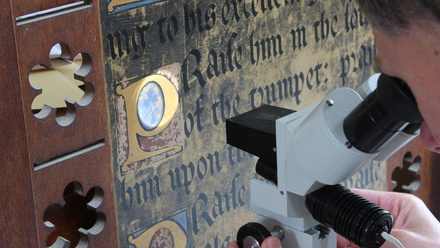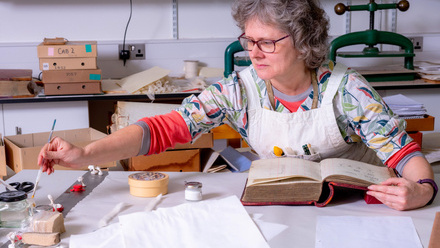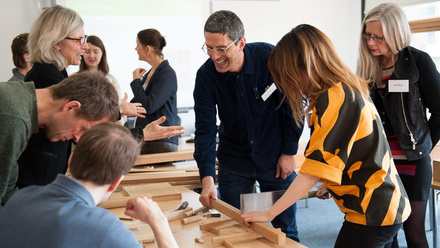Skills Investment Plan Launch in Sterling, Scotland
Earlier this month Nic Boyes ACR attended on behalf of Icon Historic Environment Scotland’s launch of the Skills Investment Plan at The Engine Shed in Stirling, Scotland.
The SIP is a five-year plan which puts a special emphasis on nurturing the workforce and supporting their skills development. Icon worked closely with Historic Environment Scotland (HES) and chaired the 'Conservation, Art and Artefacts' strand of this research. The event included the presentation of five speakers.
Nic has shared his reflections on the event, the speakers and the opportunities this presents for the conservation profession.
Here are the key takeaways:
- Kaukab Stewart MSP, Scottish Minister for Culture, Europe and International Government talked about the ways tangible and intangible heritage contributes to identity, community, well-being, and heritage related tourism. Kaukab also highlighted the role of heritage in contributing to resilience and mitigation in the face of Climate Emergency.
- Elaine Ellis, Skills Planning Manager at Skills Development Scotland shared that the Scottish workforce is reducing in size and is aging due to a number of factors. 160,000 people, or 22% of the Scottish population, of working age do not work. This is one of the key contributors to insufficient skills succession.
- Catherine Cartmell, Skills Investment Manager at HES, explained that the main goal of the SIP is to ensure the Historic Environment and its growth is not constrained by a lack of talent and skills. Catherine also shared the strategic objectives of HES: 1) promoting equality and diversity within the sector; 2) providing a strategic skills framework enabling stakeholders to deliver resources collaboratively.
- David Mitchell., Historic Environment Scotland's Director of Cultural Assets, presented a paper demonstrating the work HES has done in providing stonemasonry training for at least 30 years. This is especially important in the context of Technical College course closures due to rising costs and issues concerning silicosis. David highlighted the collaborative nature of HES’ changing role in SIP delivery.
- Tom Morton, Architect & Director of Arc Architects explained the concept of ‘Just Transition’ within Built Environment and Construction. The concept refers to the efforts to transition to sustainable practice, carbon efficiency, inclusivity, and localism of materials and skills.
Nic comments: “The launch and sustainability of the Skills Investment Plan requires a truly collaborative effort by all the partners. Personally, I feel proud that Icon members operate in at least five of the ten pillars of the Skills Investment Plan and as a result, Icon stands front and centre in this collaborative effort.”
Image credit: Nic Boyes






